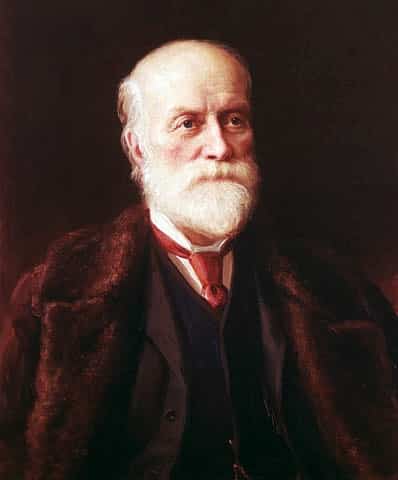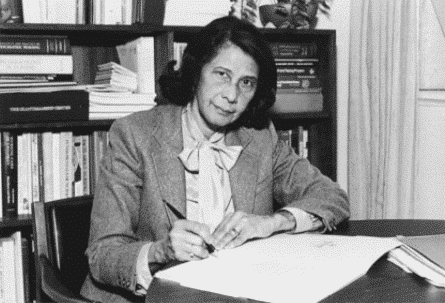
Sir Sandford Fleming (1827-1915)
When we think of innovations, we generally think of devices and their applications for our daily lives. Innovations can also be big ideas. Consider for example the following innovations:
- A plan for a worldwide system of time zones combined with a 24-hour time system (to avoid confusions of AM and PM)
- A plan for transoceanic telegraph cables linking related countries
- A plan for a postage stamp
- A plan for a transcontinental rail line, connecting the Atlantic and Pacific coasts
These were big ideas in their day, much as the internet has been in our lifetimes. What’s remarkable about the above innovations is that they are the product of one man.
Sandford Fleming was born in Scotland in 1827. When he was 14, he began an apprenticeship to become a surveyor. In 1845, at the age of 18, he and an older brother emigrated to colonial Canada. He worked as a surveyor during his early years in Canada. He proposed that the Canadian government support a transcontinental railway system. His proposal was accepted and he was appointed as chief engineer. The rail line actually led New Brunswick, Nova Scotia, and British Columbia to formally join the Canadian Federation, making it a bicoastal country.
After missing a train in Ireland because the departure time wasn’t indicated as AM or PM, Sandford proposed a 24-hour universal time for the world. It took eight years for this idea to be accepted, but it has become critical to worldwide communications today. He also proposed that each country, crossing more than one time zone, establish the borders for where times would change. This too has been implemented.
Sandford was an innovator and well-rounded individual. Other achievements included:
- Chancellor of Queens University for 35 years
- The founder of several businesses
- Leadership positions in horticultural societies as well as curling clubs
Clearly Sandford Fleming was a big thinker. While many innovators have specialized knowledge, big thinkers have an imagination that leads to generating ideas that often transcend different areas of specialization. Big idea innovators are often the enablers for many other innovations.
Just imagine the courage that a big-idea innovator must have to propose something that seems unrealistic to most people. How much cynicism must they be willing to absorb for their ideas? Those with big ideas often are either lacking in specialized education or willing to go beyond their areas of specialization. How should we think about the importance of specialization when it comes to generating innovative big ideas? Specialization can serve as a valuable gatekeeper for vetting useful ideas. Just imagine how many big ideas have laid dormant because of the fear of being ridiculed—or because they challenged the limited perspective of specialists.
* * *
“Big ideas come from forward thinking people who challenge the norm, think outside the box, and invent the world they see inside rather than submitting to the limits of current dilemmas.”—T.D. Jakes (Religious leader, author, filmmaker)
This is part of our “Just Imagine” series of occasional posts, inviting you to join us in imagining positive possibilities for a citizen-centered democracy.


